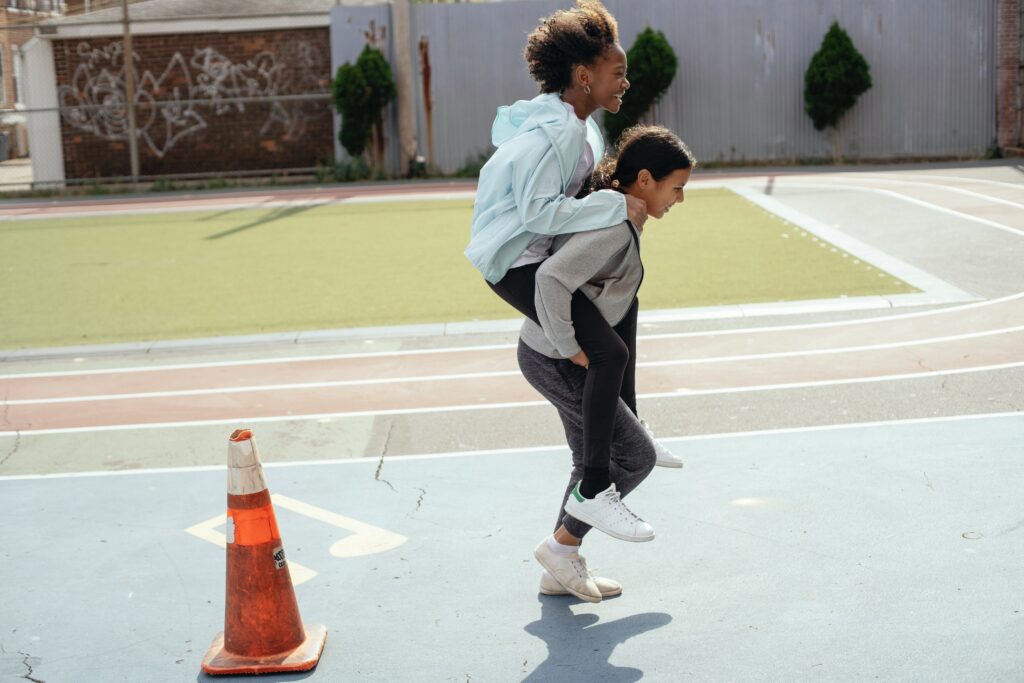Understanding Physical Education: Cooperative Challenges Outdoors

The student is provided with opportunities for deepening understanding of Primary Physical Education with a focus on cooperative challenges in the context of outdoor and adventure activities. Teaching methodologies and strategies will be analysed with reference to their application in the physical education lesson and particularly when teaching outdoor and adventure activities. A key focus will be on experiential learning to promote understanding of qualities such as cooperation and respect, as challenges are undertaken. Physical activity, development of fundamental movement skills and development of understanding of activities explored underpin the work. Students will be encouraged to probe aspects for integration with other subjects in primary curricula and to consider issues such as risk and safety related to outdoor and adventure activities.
Suggested Number of ECTs
1
Total Workload
2 hours
Seminar - 2 hours
TEACHING METHODOLOGIES
Practical with theory woven through
FACILITIES
Outdoor play area, sports hall, local park/recreational area
Dimensions Core
D1K1, D1K2, D1K3, D1K4; D1S1, D1S3; D1C1
D2K1; D2S1, D2S2, D2S3, D2S5
D3K1; D3S1, D3S2; D3C1, D3C2, D3C3
D4S1, D4S2; D4C1, D4C2, D4C3
D5C2, D5C3
Dimensions Extended
D1C2, D1C3
D2K2, D2K3; D2S6, D2S7, D2S8; D2C2, D2C3
D3K2, D3K3; D3S3, D3S6
D4K2; D4S4; D4C4
D5C4
Indicative Content
Adventure Education and Outdoor Education
Experiential learning: experiencing, reflecting, analysing, applying
Practical exploration of cooperative challenges (e.g., Steppingstones; Hula-hoop circle, Hula hut construction,
Cooperative Jigsaw and Symbol Relays, Shuffle pack, Peg game, Blind trail; Bull Ring challenge)
Teaching methodologies and approaches with a particular focus on differentiation and experiential learning
Using cooperative challenges to enhance physical activity levels and development of fundamental movement skills
How cooperative challenges can be integrated with work in other subjects e.g., science/environmental
studies/social and personal development
Safety and risk assessment through cooperative challenges as an aspect of an outdoor and adventure
programme
Use of digital technology e.g., i-Pads to record elements of challenge
Application of Multiple Means of Representation (Universal Design for Learning) when teaching cooperative
challenge
MODULE LEARNING OUTCOMES
LO1 engage critically and analytically, and develop a personal understanding of teaching outdoor
and adventure education with reference to key considerations such as inclusion, safety, risk
and personal responsibility
LO2 explore cooperative challenges in the context of outdoor and adventure activities
LO3 develop integrated pedagogical approaches with a focus on experiential learning for teaching
outdoor and adventure activities and linking it to work in other subjects of the curriculum
LO4 begin to use some digital tools (e.g., iPads) to record process of working through cooperative
challenges outdoors
LO5 use a range of strategies to support, monitor and assess children’s progress